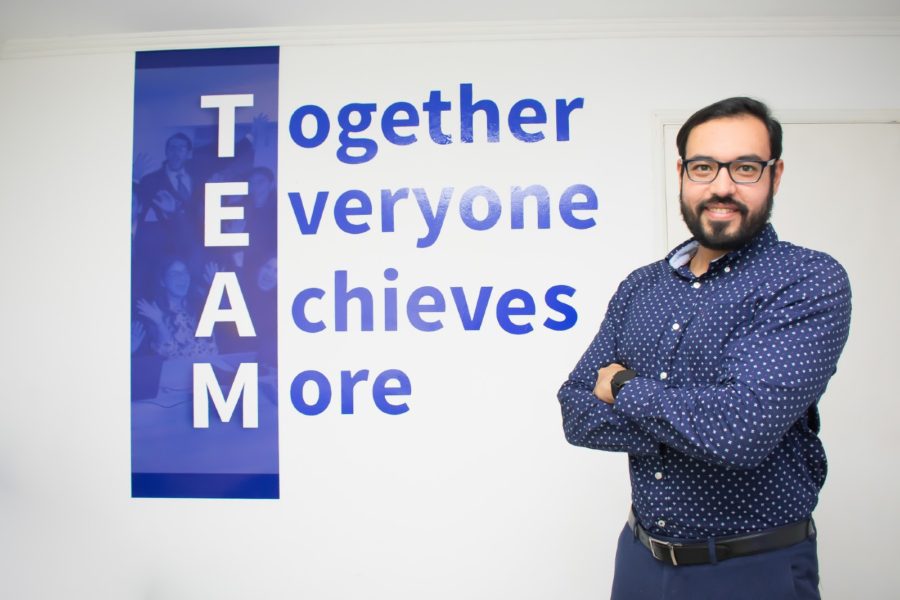Empathy and accountability are two qualities that do their best work when they are applied together.
Too much empathy can lead to deadlines not being met and employees feeling like they can do as they want in the workplace. And although some flexibility is indeed necessary, it has to be mixed with the right amount of accountability to make sure you have happy and productive workers.
It’s not like you’re planning on starting a military camp either, right?
To maintain accountability, you have to set clear boundaries for your team. However, let’s not forget that the only way to set clear boundaries that everyone agrees on is to understand your employees’ needs and requests, and make sure they can work well together.
Finding that sweet spot between empathy and accountability is a must if you are looking to create a workplace where employees can thrive. If you are looking for advice on being more empathetic, holding others accountable for their actions, or combining the two, you’ve reached the right place. Here are our tips for maintaining accountability and empathy in the workplace:
1. Set Clear Expectations & Goals
The first step to building a workplace that endorses accountability and empathy is to give complete clarity of the expectations you have for your employees.

As employees, we all deserve to know exactly what we’ll be held accountable for from the beginning. As well as having open communications and opportunities to ask questions, learn skills and follow up.
To achieve all of this, you need to have ongoing feedback from your employees. Your team leaders and managers should constantly foster teamwork and dialogue about what is working and what is not, from all perspectives.
Focus on creating an effective communication system. Remember that employees thrive and improve when they are heard and feel like they are a part of the community. Train your leadership team so that they can set a clear vision of what effective communication looks like.
With clear and measurable goals comes flexibility:
Once you have a deadline set, trust that your employees will do a great job and provide them the flexibility to work in their best environment. Remote work, flexible working hours, extra rest days, etc.
Don’t forget about your employees’ needs and start prioritizing their mental and physical health so that your well-rested employees can stay laser-focused on a clear, measurable goal and accountability for individual and organizational results.
2. Establish And Define Consistent Accountability
Along with clear goals, comes clear accountability.
Clear accountability is established from the beginning, remains consistent throughout your employees’ journey, and is highlighted and understood by all. This will help your employees improve their productivity. Remember that productivity is tied to success.
With clear accountability, empathy shouldn’t be a challenge because it’s only when accountability is not defined that balancing the two is impossible. Your employees already know what exactly they’ll be held accountable for, so they are aware of their own mistakes and errors. It is your job as a leader to be decisive with your decisions and make these types of mistakes learning opportunities for your employees.
Accountability doesn’t mean establishing tons of rules
When your company is focused on having a good relationship with your employees, you don’t need to set a lot of rules and policies to keep them in line. Setting boundaries and expectations are important. However, having a good relationship with your employees means that you’ll have empathy for their circumstances and situations, and they’ll have respect for you and a sense of responsibility for their actions.
When your company is based around a culture of trust and growth, you don’t need to intimidate your employees with rules and policies. Strive to build a place where your employees are transparent enough to tell you about their goals, hurdles, and needs.

Once you get to know your team and understand what motivates them, both personally and professionally. You’ll be able to set targeted goals based on those motivations and the strategic direction of the organization.
3. Take Care Of Your Culture & Mission
Your company exists for fulfilling your mission, but your mission will only be fulfilled if you take good care of your people and your employees. Knowing and caring about your employees’ needs, growth, and desires is an inherent part of accomplishing your mission.

This is why it’s important to follow a mission, values, and a culture that nurtures both accountability and empathy. You’ll be building a workplace that’s based on transparency, trust, and communication. A place where your employees feel valued and their motivation to work comes from a place of trust and not fear or intimidation.
You, as a leader, can only reach out to a limited quantity of employees, but through a consistent, long-term focus on the business, you’ll be able to spread a culture that stays true to the company’s mission without going over individual employees.
A good culture is established in trust
Trust is what binds accountability and empathy.
Empathy is established through individual, authentic, and repeated conversations with our teams. Creating this connection is what establishes true role clarity and gives employees the confidence to fulfill their goals. Accountability will occur when said goals and expectations aren’t reached and support isn’t fully utilized.
Giving your employees trust doesn’t mean that they’ll get away with anything, it just means that a mistake will always become a learning experience that, through the right accountability and feedback, shouldn’t be repeated.





